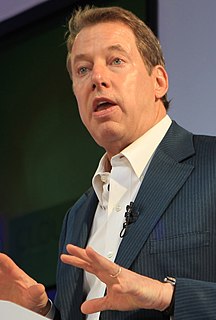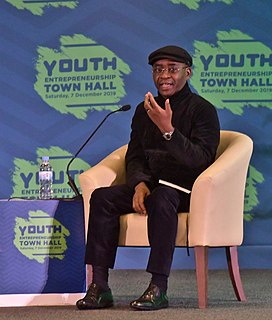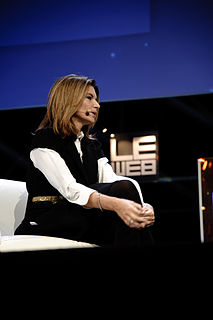A Quote by James A. Champy
Very soon, most companies will need to have a global operating model - even if you only sell locally. Even mid-sized companies will source globally. Knowing how to operate in this environment will be critical. We need to train managers and leaders to become citizens of the world.
Related Quotes
We wield an enormous influence over the world through how we choose to vote and what we choose to buy. Again, it's the power of numbers. If voters hold their leaders responsible for doing something about global warming, it will get done. If most people refuse to buy products from companies that, for example, wrap products in more plastic than necessary, pretty soon the plastic wrapping will stop.
Companies tend not to recognize that the way global projects have to be organized and run is fundamentally different from how co-located projects are managed. Everything is different in global projects from the need for organizational stability, a shared strategic context driving the project, the building of a competence in dispersed working, greater focus on planning the project to the need for trust between sites. Yet, most firms merely transfer their co-located best practice to a global arena. This will inevitably result in problems, delays and cost overruns.
It is my hypothesis that the fundamental source of conflict in this new [post-Cold-War] world will not be primarily ideological or primarily economic. The great divisions among humankind and the dominating source of conflict will be cultural. Nation states will remain the most powerful actors in world affairs, but the principal conflicts of global politics will occur between nations and groups of different civilizations. The clash of civilizations will dominate global politics. The fault lines between civilizations will be the battle lines of the future.



































